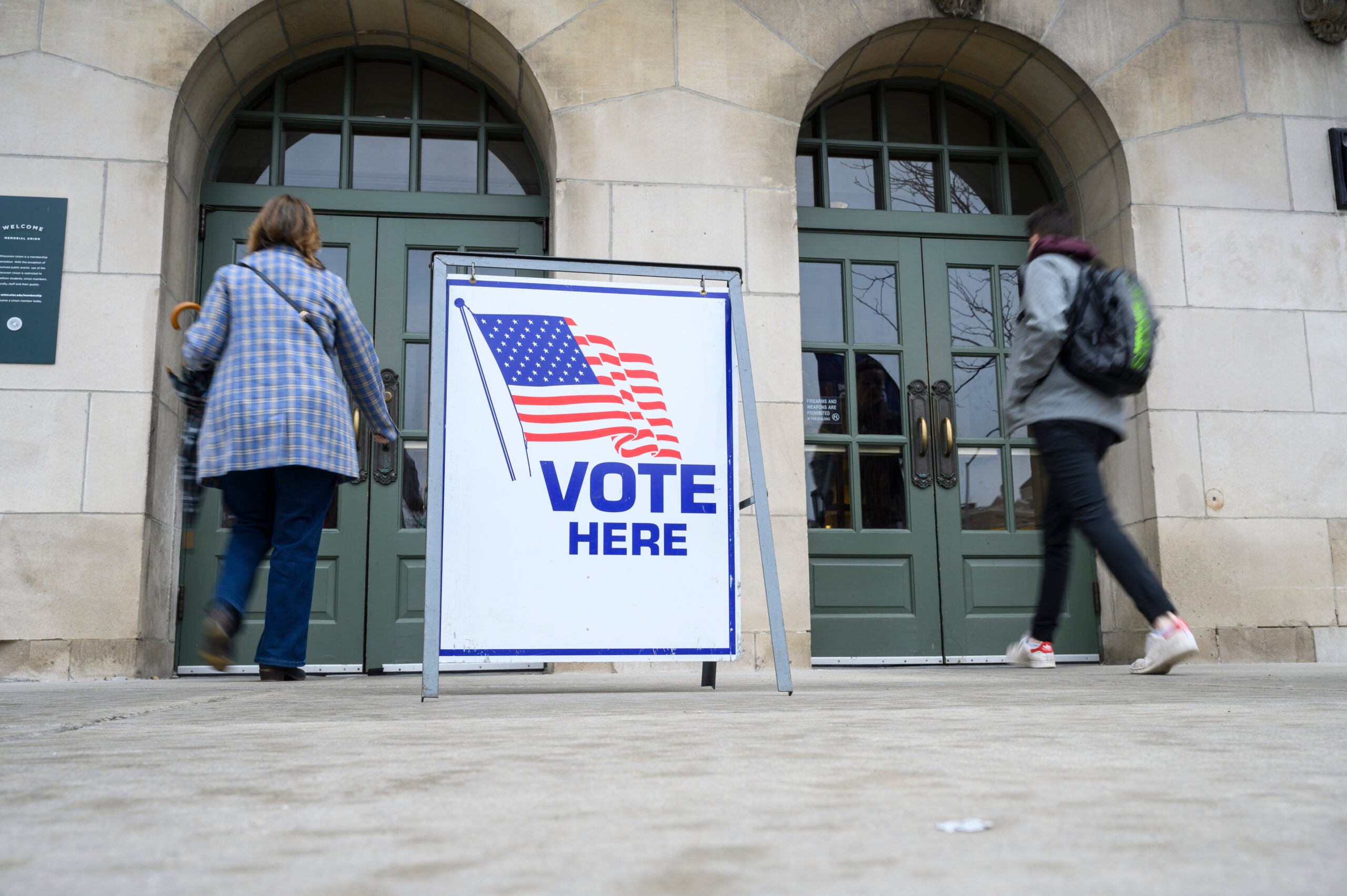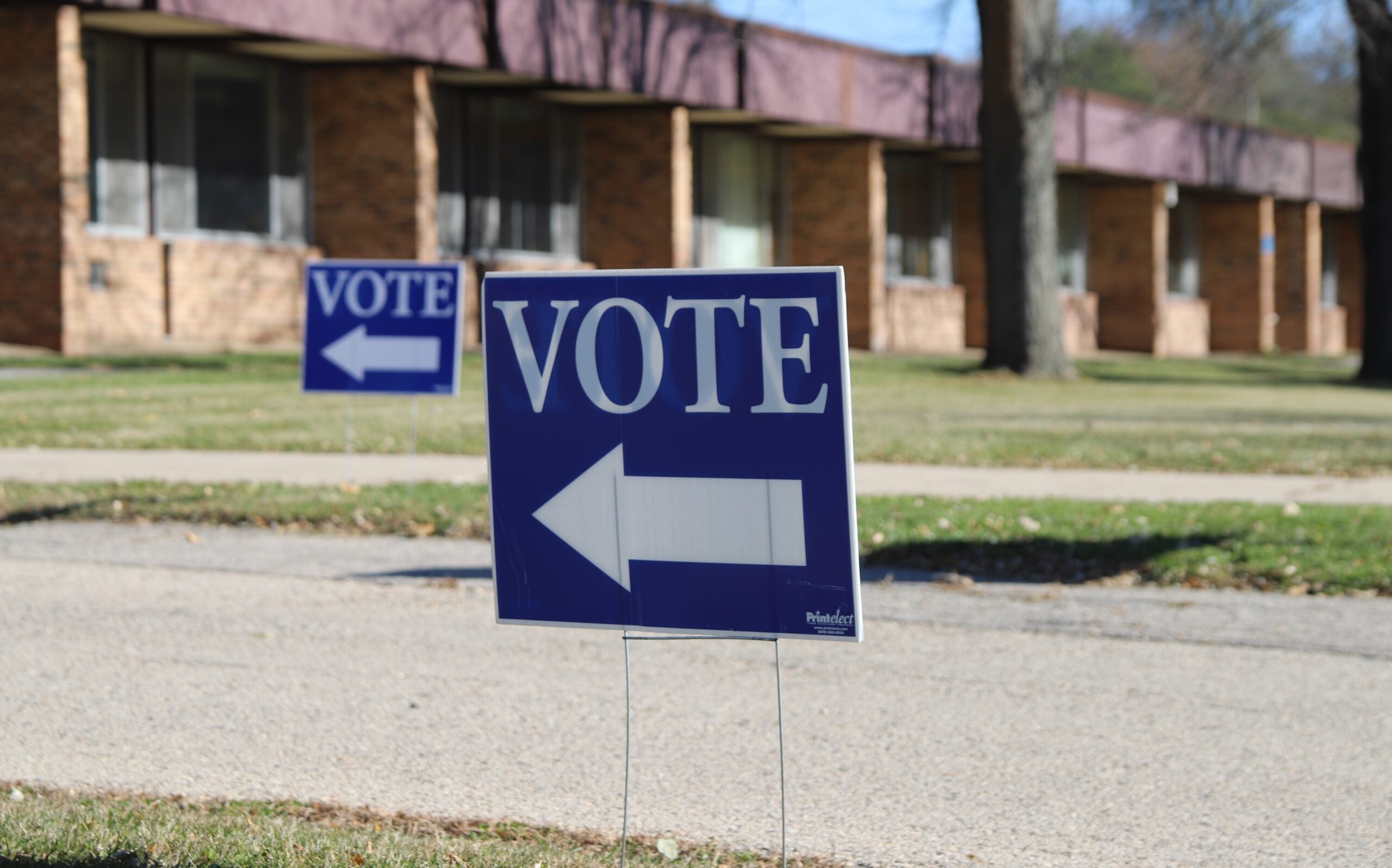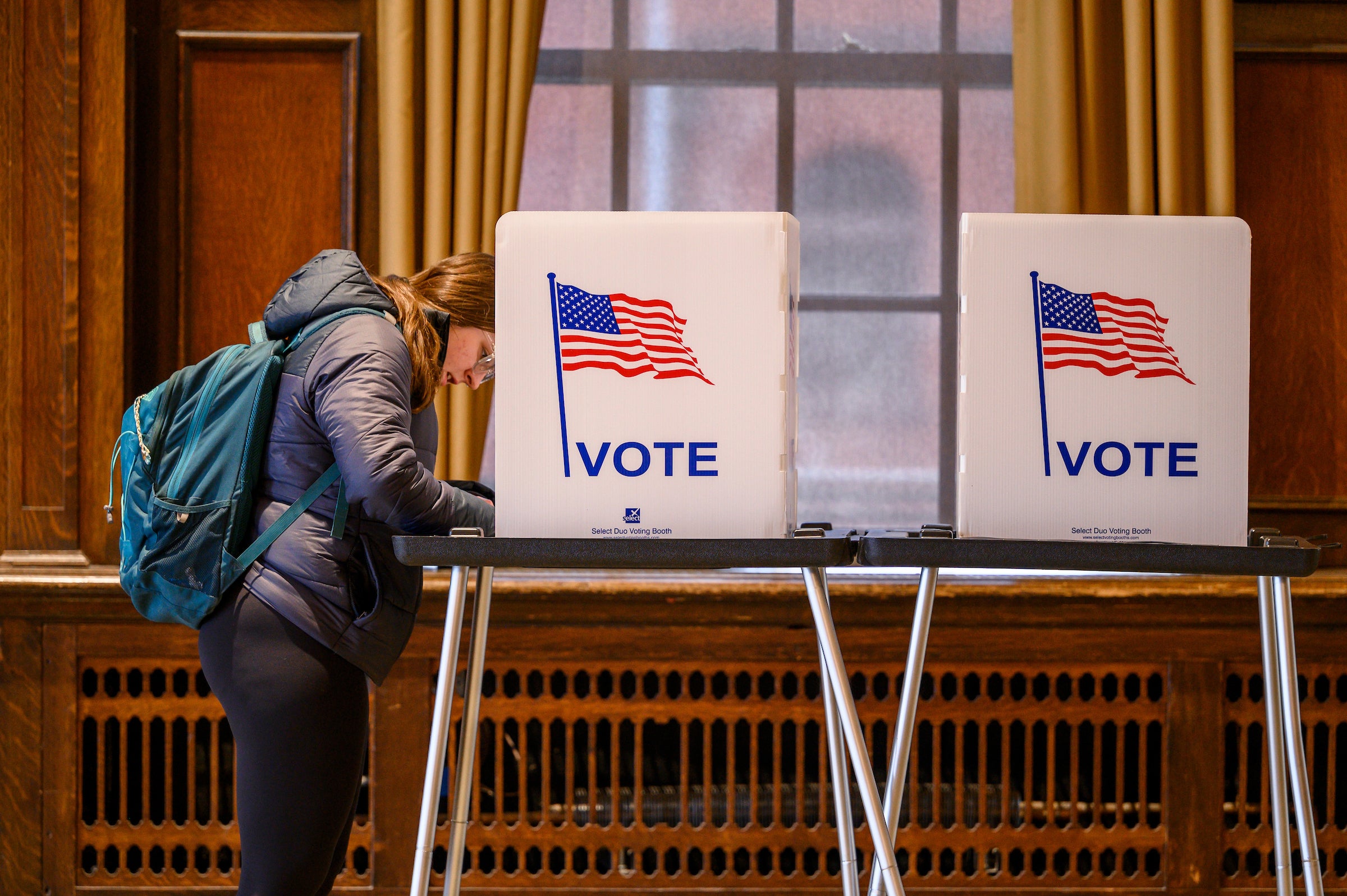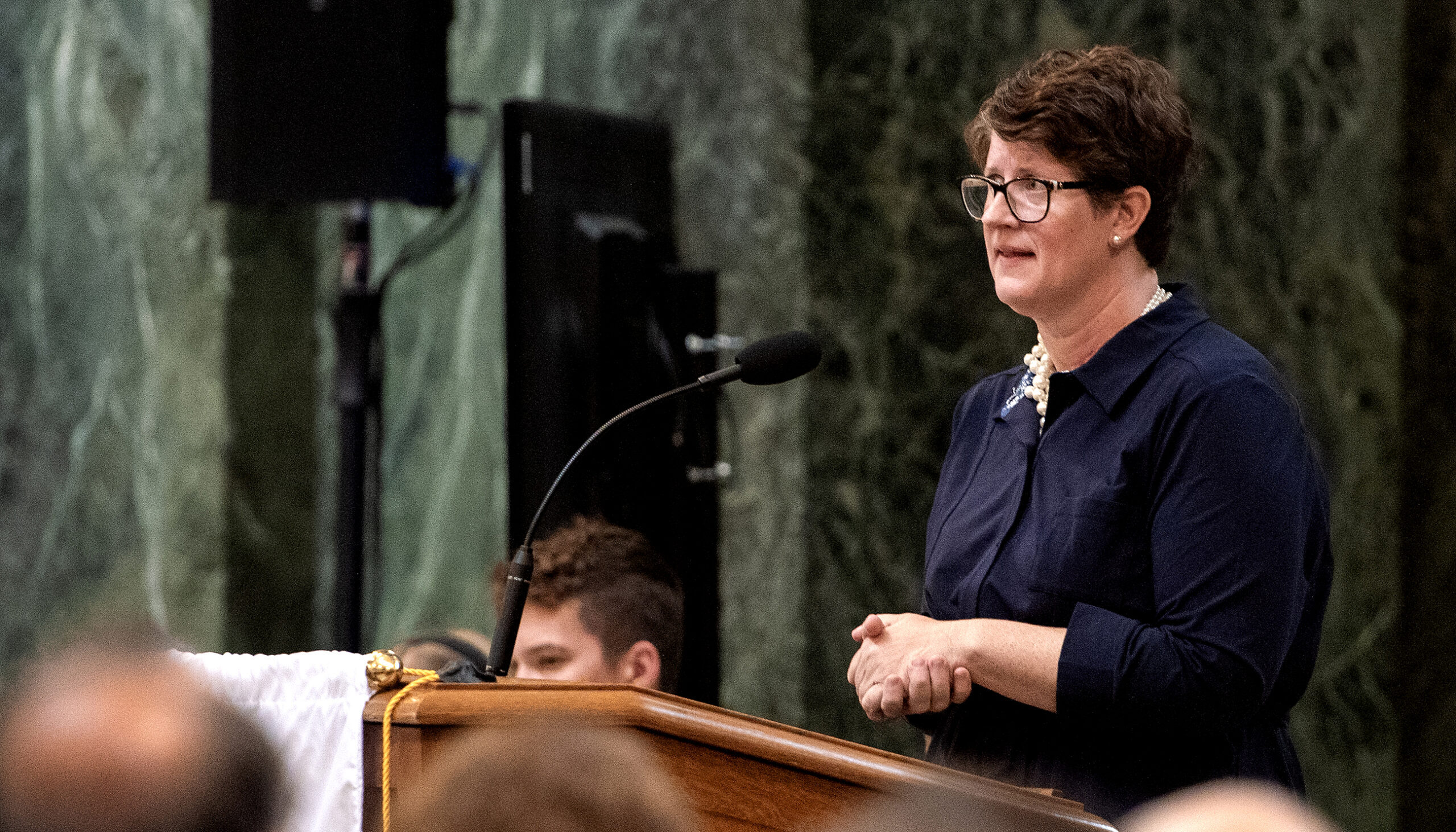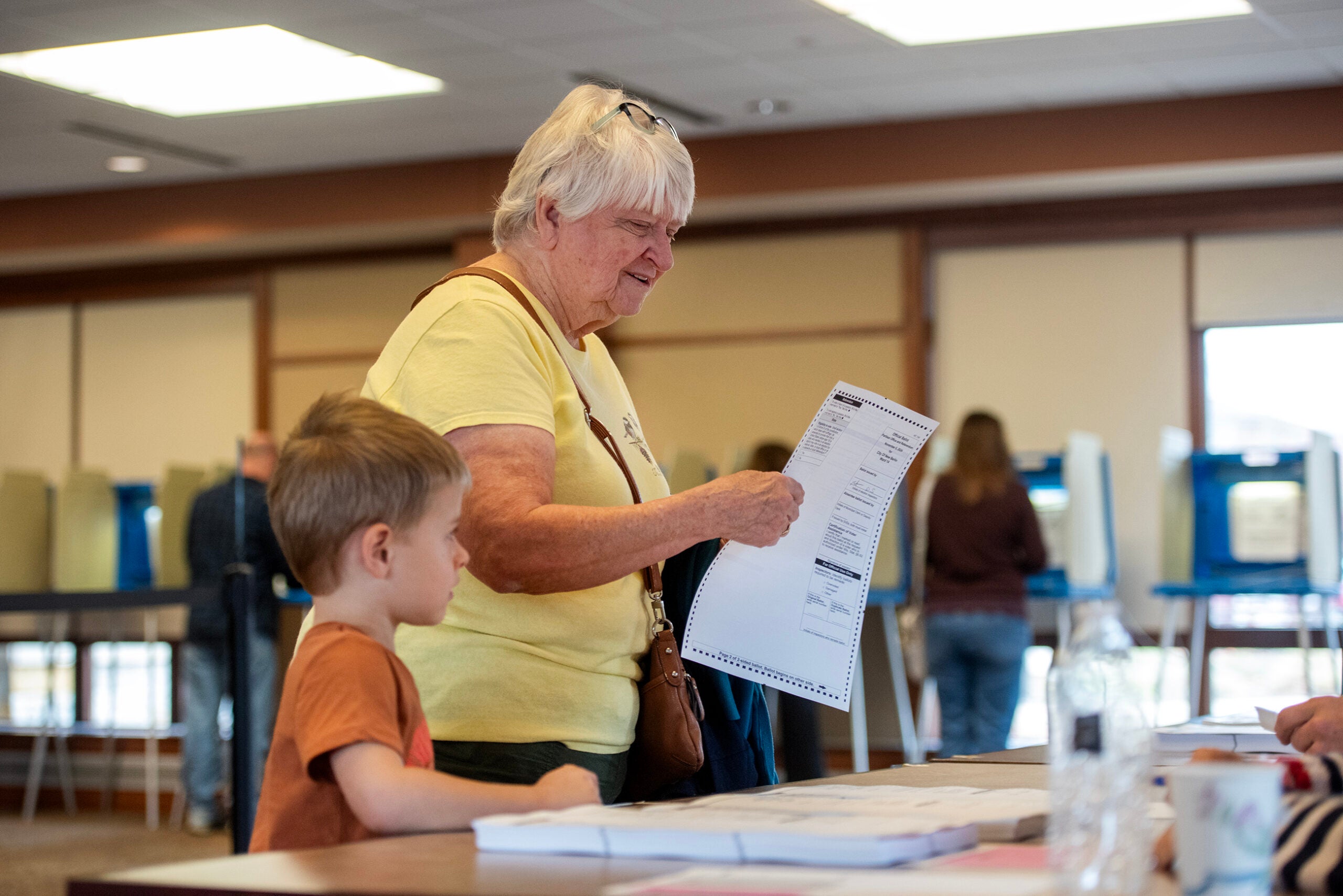Wisconsin voters will head to the polls Tuesday to decide the state’s next superintendent of public instruction.
The election will also decide two state appeals court races that received an unusually high level of campaign spending this year.
In addition, voters in 13th Senate District and the 89th Assembly District will elect new members of the Legislature to replace longtime lawmakers who left for other jobs. Throughout the state, residents will also vote on local races like circuit court judge, school board, city council and county executive.
Stay informed on the latest news
Sign up for WPR’s email newsletter.
The only statewide race on the ballot is the superintendent of public instruction, a constitutional office as the state’s top education official elected to a four-year term in Wisconsin. Two candidates are vying for the job: former Brown Deer School District Superintendent Deb Kerr and Pecatonica Area School District Superintendent Jill Underly.
The current state superintendent, Carolyn Stanford Taylor, announced last year she would not run for a full term. She was appointed to the job in 2019 by Gov. Tony Evers, who was Wisconsin’s state superintendent for almost 12 years before he was elected governor.
While the state superintendent is officially nonpartisan, Kerr and Underly have been endorsed by groups typically at odds in state politics. Underly has the backing of the state’s largest teacher’s union while a group that advocates for private school vouchers supports Kerr.
Underly has been endorsed by a long list of current and former Democratic state lawmakers, including all three Democratic members of Wisconsin’s congressional delegation. Kerr’s backers include Sen. Alberta Darling, R-River Hills, and Arne Duncan, who served as secretary of education under President Barack Obama. Duncan said Kerr was one of his high school teachers.
According to the Wisconsin Democracy Campaign, groups that typically back Democrats have spent about $798,000 to support Underly or oppose Kerr. The pro-voucher American Federation for Children, meanwhile, has spent $209,000 to oppose Underly.
Residents of dozens of Wisconsin counties will also have a chance to vote in one of two contested appeals court races, where the winners will receive six-year terms.
In the Waukesha-based 2nd District, which covers 12 counties in southeastern Wisconsin, incumbent appeals court Judge Jeff Davis faces a challenge by Muskego Judge Shelley Grogan. Davis is backed by Wisconsin Supreme Court Chief Justice Patience Roggensack and Justice Annette Ziegler while Grogan has the support of Justice Rebecca Bradley and former Justice Daniel Kelly.
In the race for the Wausau-based 3rd District Court of Appeals, which covers 35 northern Wisconsin counties, attorney Rick Cveykus faces Judge Greg Gill. Gill’s backers include high-profile GOP donors like Uline CEO Richard Uihlein and Menards CEO John Menard.
In the 13th Senate District, Rep. John Jagler, R-Watertown, faces Melissa Winkler, an Oconomowoc Democrat. The winner will fill the seat held for years by former Senate Majority Leader Scott Fitzgerald, R-Juneau, who was elected to the U.S. House of Representatives in November.
In the 89th Assembly District, Oconto Republican Elijah Behnke faces Democrat Karl Jaeger of Marinette. The winner will fill a seat held previously by Republican John Nygren of Marinette, a longtime co-chair of the Legislature’s budget committee who left the Legislature to lead the Wisconsin Association of Health Plans.
Polls open at 7 a.m. and close at 8 p.m. statewide in Wisconsin.
Residents can visit myvote.wi.gov to verify their registration, find their polling place and see what will be on their ballot.
People who are not yet registered to vote can register at their polling place on election day as long as they bring the appropriate documentation.
Voters who requested absentee ballots by mail but haven’t returned them yet can return them to their polling places on election day. Voters in 39 cities, villages or towns that count absentee ballots at a central location must return ballots to their clerk’s office or the central count location.
People who vote in person are required to show a state-issued photo ID, like a driver’s license.
Voters are advised to wear masks Tuesday, but they’re not required.
Wisconsin Public Radio, © Copyright 2025, Board of Regents of the University of Wisconsin System and Wisconsin Educational Communications Board.

